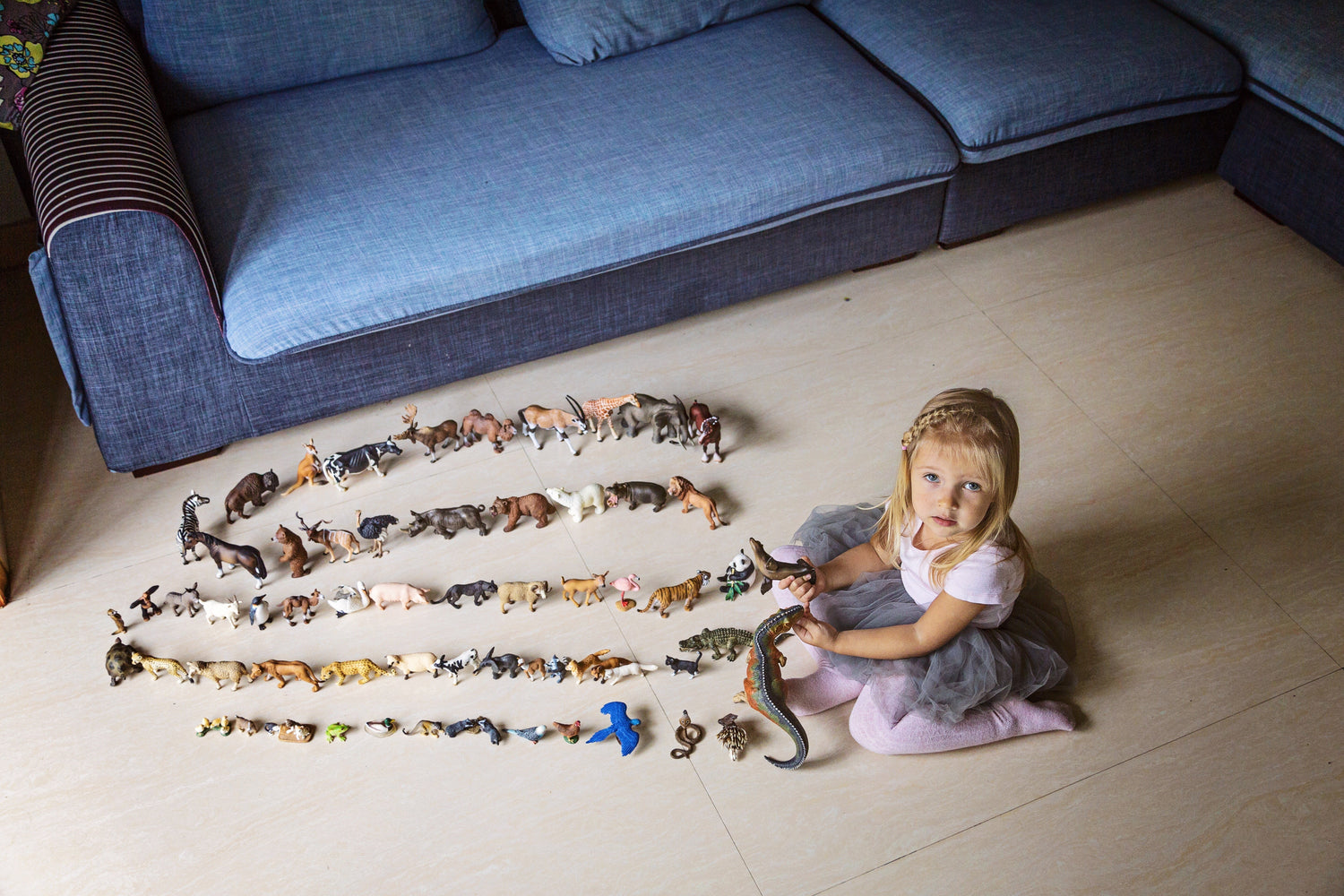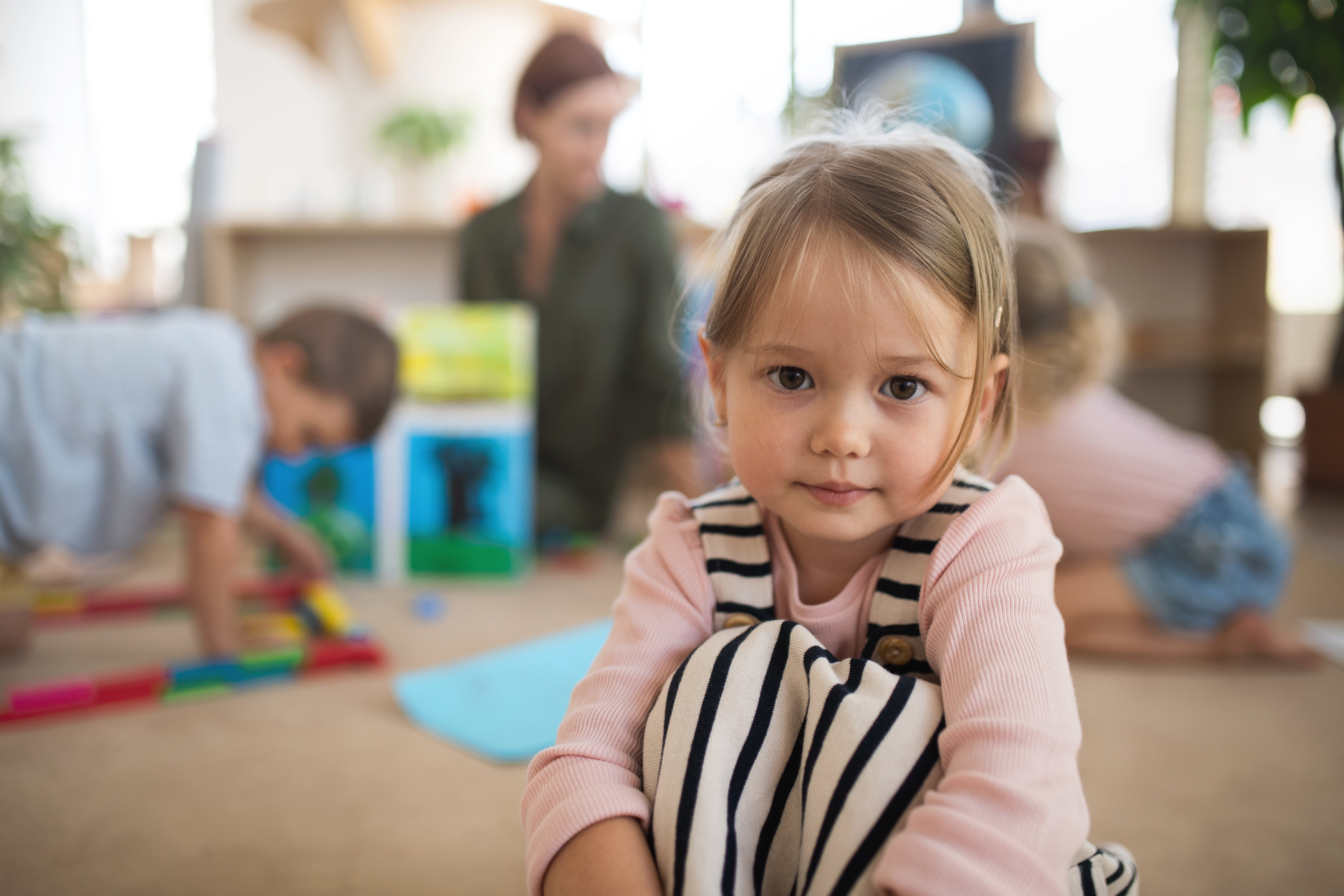By Megan Archer
Why It Matters?
Do you ever find yourself thinking, “Not this again...” as your child lines up the same cars or asks for the same story for the fifth time today? It is completely normal to want to offer new games and fresh experiences. It is also easy to wonder why your little one keeps coming back to the same play again and again.
Repetitive play is not a sign that they are stuck. It is a sign of strong engagement,
which is what leads to deep learning.
When children repeat the same play or actions, they are not just passing the time. They are practising. Repeating things helps them build confidence, strengthen memory, and develop a sense of mastery. It gives your child a familiar space to explore new ideas, try things out, and learn from what works and what doesn’t.
Familiar play feels safe. When children know what to expect, they are more willing to take small risks, solve problems, and connect with others. As play researcher Dr David Whitebread from the University of Cambridge explains, “In play the individual can try out new behaviours, exaggerate, modify, abbreviate or change the sequence of behaviours, endlessly repeat slight variations of behaviours, and so on.” This type of repetition supports deeper learning by giving children time to reflect, adjust, and grow.
Repetitive Play Builds More Than You Might Expect!
Confidence

When children return to the same play, they are quietly building confidence.
Repetition gives them the safety to practise until something feels easy. This helps
prepare them to take on new challenges when they are ready.
Thinking skills

Repetition strengthens memory and helps children notice patterns. It also supports problem-solving and builds executive function, which includes focus, planning, and Self-control.
Language

Playing in the same way means hearing and using the same words over and over. This helps children grow their vocabulary and feel more confident expressing themselves. Research shows that repetition is one of the most effective ways for children to learn and remember new words.
Emotional management

Secure, familiar play helps children manage their feelings. When they know what to expect, they feel in control. This gives them a gentle space to practise emotional balance.
Social skill development

Pretend games like “playing shop” or “having a tea party” are often repeated many times. Each time, children rehearse important social skills. Research shows that this kind of role play helps children learn to take turns, understand other people’s perspectives, and sort out small disagreements.
Movement and coordination

Repeating physical actions like building, climbing, or pouring helps develop strength, balance, and coordination. These movements support both fine and gross motor skills, building the foundation for more complex physical tasks in the future.
When You’re Over It (Because That Happens Too)
Repetition can get tiring, especially if you are juggling a lot. If you are feeling a bit
over it, here are a few gentle ideas that might help:
Pause and reframe
Try to remind yourself that this is real learning in action. Each repeat is building
something important in your child’s brain.
Join in – just for a moment.
Even five minutes of focused time can meet your child’s need for connection and
help them continue independently.
Add a small twist
You do not need to change everything. Keep the main play the same, but add a new character, a silly voice, or a tiny challenge.
Set kind limits
It is okay to say, “One more turn, then we will move on.” Clear and loving boundaries help children feel safe.
Take a minute for you.
Your needs matter too. A quick breather can help you come back with more patience and presence.
Next time your child asks to do that thing again, remember they are learning,
growing, and building a strong foundation for the future. What looks simple on the
outside is full of meaning in their world. Try to give them the space to repeat and
explore because it is a natural and important part of their development. Each repeat builds confidence, supports deeper learning, and helps your child feel safe enough to try new things when they are ready.
References
Diamond, A. & Lee, K. (2011). Interventions that support thinking skills in
Children aged 4–12. Published in Science.
Spagnola, M. & Fiese, B. H. (2007). Family routines help young children grow and learn. Published in Infants & Young Children.
Lillard, A. S. et al. (2013). What pretend play can (and can’t) do for children’s development. Published in Psychological Bulletin.
Whitebread, D. (2012). The Importance of Play. Report from the University of Cambridge.



